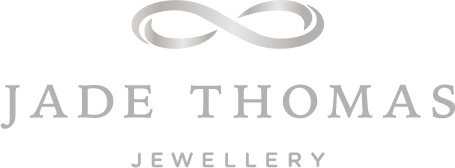Ethical Jewellery Part One - Precious metals
Ethics and responsibility when creating jewellery is a big subject! So in this blog, I’ll be looking at the options available when choosing precious metals for use in ethical jewellery.
Mining
Mining of precious metals usually falls into two categories - Large Scale Mining and ASM (Artisanal and Small Scale Mining).
Most of the World’s gold is produced by major corporations in Large Scale Mining Projects. They employ thousands of people. They are huge mines like this one in Indonesia which produces Gold, Silver and Copper:
image courtesy of mining.com
Large scale mining is undertaken by major corporations in many places including China, Russia, Canada, Africa and Australia.
There is no denying that large scale mineral and metal mining is very destructive towards the environment in regards to deforestation. Large scale mining also involves using huge bulldozers and excavators to extract the metals and minerals through the soil. In addition, they might use chemicals including cyanide and mercury in the extraction process.
On the plus side, these large, often multi-national, companies are bound by (and frequently have to publicly disclose performance against) various international health, safety and environmental standards (such as the UN Guidelines and the OECD Due Diligence), and each mine employs tens of thousands of people.
In Artisanal (working by hand tool) or Small Scale (using small scale machinery) Mining operations, the personal risks are much higher for the small teams of miners, because of the dredging techniques, the use of chemicals, and therefore proximity to toxic waste without adequate safety equipment. In fact 35-40% of the Mercury in the environment is created by the use of Mercury in Artisanal mining! These poisonous chemicals end up in the water system and contaminate all living organisms. The people who depend upon the sea for food or livelihood are badly affected.
Photo Credit Fairphone.com: Women working at a mine in Busia, Uganda.
Ethical Metal Jewellery Options:
There are choices we can make though:
Certified gold
Fairmined or Fairtrade Gold is available as an option (usually at a 15-20% supplement to the tracked price of gold).
Thanks to the Fairmined Standard, anyone who buys gold and associated precious metals can support responsibly managed community mines.
Both of these certifications make a real difference to the lives of miners and their communities. Choosing Fairtrade or Fairmined gold means you know the small-scale and artisanal miners were paid a fair price, giving them financial security. The rest of the supplement goes to invest in building the future of their families and their communities, through education, medical care or environmental projects. I create the best Fair Trade jewellery for my clients as my jeweller has access to Fair Trade white, yellow and rose gold.
Choosing certified gold also ensures that the gold is completely traceable to source and it comes from a project which meet world leading standards for environmental and safety practises.
Recycled Gold and Silver
Sourcing recycled and re-refined metals is getting ever easier. The materials come from reusing old jewellery, electrical components and Industrial use metals.
However - like my colourful jewellery collection - nothing is ever black and white … if you are interested in further reading, please take a look at this interesting article about the questions raised by recycled gold and silver by Greg Valerio.
I’m working with my suppliers to understand how they encourage and promote more responsible sourcing or mining.
As a designer, I create one-off pieces of jewellery - so if you are keen to explore the use of one of the ethical options above, please get in contact!
I have used Fairtrade Gold in some of my newer jewellery designs.
For more information, I suggest attending one of Stuart Pool’s workshops, or follow his ethical gemstone business on Instagram: nineteen48_ltd
Let me know if you’re looking for Men’s or Women’s ethical Jewellery.



